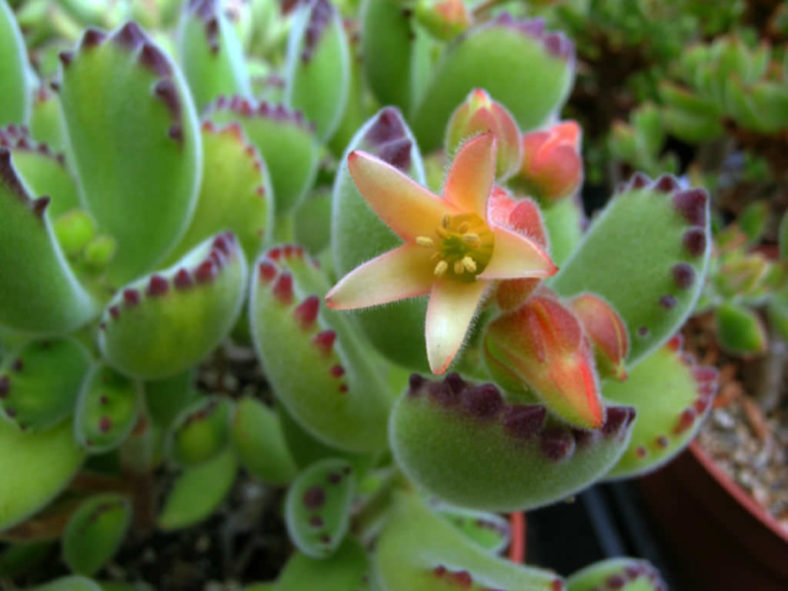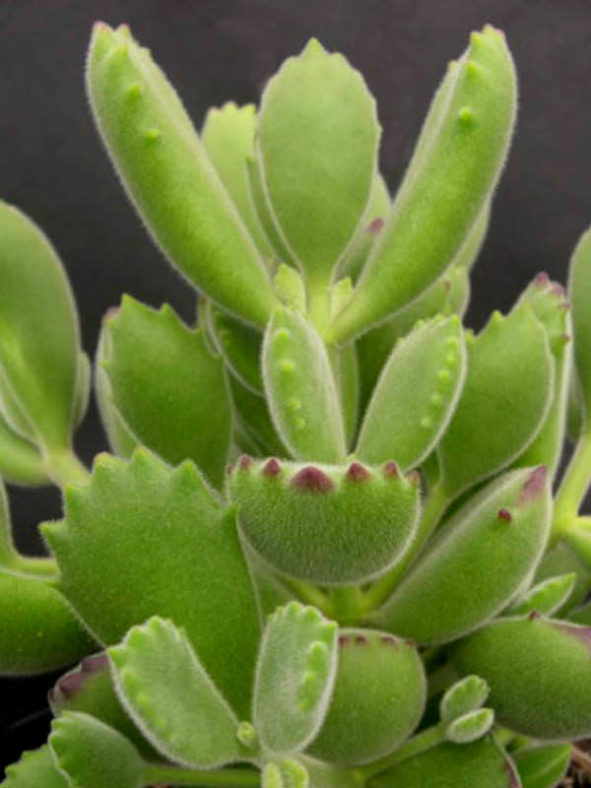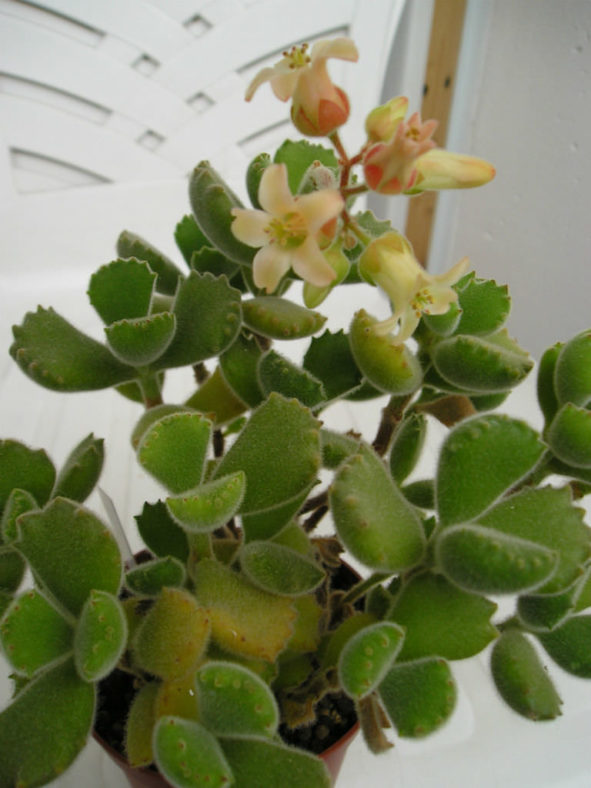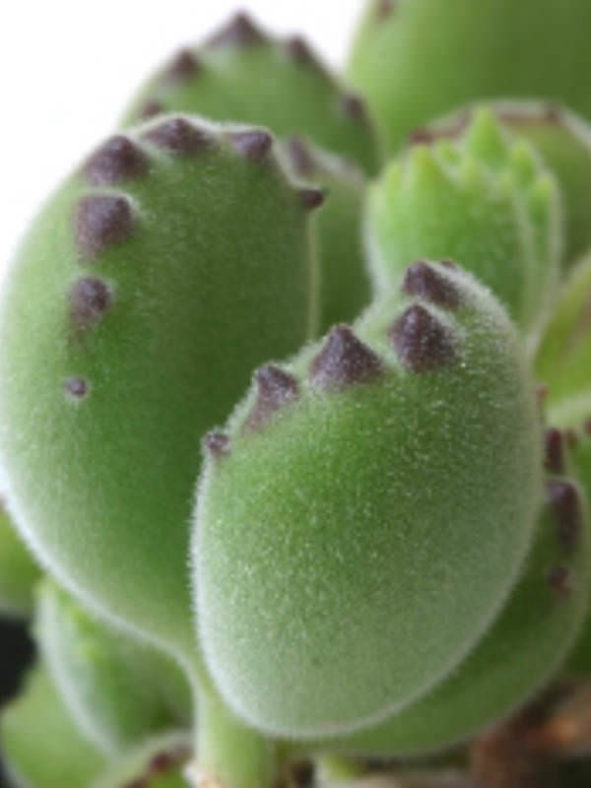Scientific Name
Cotyledon tomentosa Harv.
Common Name(s)
Bear's Paw
Scientific Classification
Family: Crassulaceae
Subfamily: Kalanchoideae
Genus: Cotyledon
Etymology
The specific epithet "tomentosa" (pronounced "toh-men-TOH-suh") means "covered in (often matted) hair" and refers to the leaves of this species that are covered with a dense layer of short hairs.
Origin
Cotyledon tomentosa is native to South Africa (Cape Province).
Description
Cotyledon tomentosa is a densely branched succulent shrublet with branches that bear hairy, green to gray-green leaves with 3 to 10 reddish to dark red marginal teeth. It can grow up to 20 inches (50 cm) tall. The leaves are thick and fleshy, measuring up to 2.6 inches (6.5 cm) long and 1.3 inches (3.2 cm) wide.
The bell-shaped flowers are light yellow, orange to orange-red, or pinkish and appear in spring.

Subspecies and Forms of Cotyledon tomentosa
- Cotyledon tomentosa subsp. ladismithiensis
- Cotyledon tomentosa subsp. tomentosa
- Cotyledon tomentosa f. variegata
How to Grow and Care for Cotyledon tomentosa
Hardiness: USDA hardiness zones 9b to 11b: from 25°F (-3.9°C) to 50°F (10°C).
Bear's Paw grows in bright, shaded areas that rarely receive direct sunlight. Outdoors, plant it in slightly sandy, well-drained soil where water does not collect after rain or irrigation. Potted plants require a container with at least one drainage hole at the bottom. When planting Bear's Paw in containers, select pots only slightly larger than the root system.
Regular deep watering in the summer, when the plant is actively growing, keeps the Bear's Paw healthy. Water garden plants deeply once weekly when there is no rainfall, supplying about 1 inch (2.5 cm) of water. Potted plants require watering when the soil has almost completely dried. Thoroughly drench the soil until water drains from the bottom hole in the pot, and then empty the collected water after the pot has finished draining. Bear's Paw only requires enough water in winter, so the soil does not dry completely, and the plants do not shrivel.
Light fertilizing, done twice a month, is only necessary during the active summer growing season. An all-purpose, water-soluble fertilizer, such as a 24-8-16 blend, works well for succulent plants.
Learn more at How to Grow and Care for Cotyledon.
Links
- Back to genus Cotyledon
- Succupedia: Browse succulents by Scientific Name, Common Name, Genus, Family, USDA Hardiness Zone, Origin, or cacti by Genus
Photo Gallery
Click on a photo to see a larger version.


